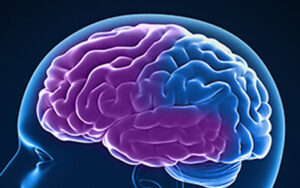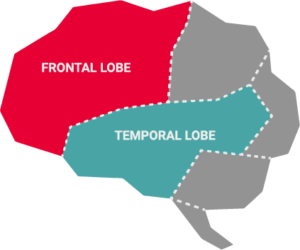By Yanick Rice Lamb
FierceforBlackWomen.com
Wendy Williams says she has been touched by the outcry of concern over this week’s update on her health, which also offers important lessons for the public. Her medical team revealed that she has been diagnosed with frontotemporal dementia and a subtype of FTD called primary progressive aphasia (PPA).
“I have immense gratitude for the love and kind words I have received after sharing my diagnosis,” the former TV host and radio personality said in a statement sent to Fierce on Friday.
“Let me say, wow! Your response has been overwhelming. The messages shared with me have touched me, reminding me of the power of unity and the need for compassion. I hope that others with FTD may benefit from my story.”
FTD is one of the rarer forms of dementia – the most common being Alzheimer’s disease. (See “5 Top Types of Dementia,” below.) Williams has the same type of dementia as actor Bruce Willis, who has appeared in everything from the “Die Hard” film series to “The Fifth Element” and “Sin City.”

Source: Alzheimer’s Association
People with FTD experience nerve cell damage to the frontal lobe behind the forehead and the temporal lobe behind the ears, which can affect language skills, personality and behavior, according to the Alzheimer’s Association. Williams’ subtype, primary progressive aphasia, can deteriorate language skills, including speaking, comprehension and writing.
These conditions “have already presented significant hurdles in Wendy’s life,” her medical team said in a statement on Thursday. “Over the past few years, questions have been raised at times about Wendy’s ability to process information and many have speculated about Wendy’s condition, particularly when she began to lose words, act erratically at times, and have difficulty understanding financial transactions.”

Source: Association for Frontotemporal Degeneration
“Unfortunately, many individuals diagnosed with aphasia and frontotemporal dementia face stigma and misunderstanding, particularly when they begin to exhibit behavioral changes but have not yet received a diagnosis,” said Williams’ doctors, who include specialists at Weill Cornell Medicine in New York.
“There is hope that with early detection and far more empathy, the stigma associated with dementia will be eliminated, and those affected will receive the understanding, support, and care they deserve and need.”
African-American women and men are twice as likely to develop dementia than white Americans, the Center for Brain Health Equity reports. Although FTD is a less common form of dementia, it’s more common for those 60 and younger, according to the Association for Frontotemporal Degeneration.
The U.S. estimate of 60,000 FTD cases is considered an undercount, since so many people are misdiagnosed and it can take roughly four years to be diagnosed correctly – especially for African Americans.
In an FTD Insights Survey, 36% of Black respondents, compared to 18% of the total, said it took visits to as many as four doctors to achieve a correct diagnosis. The initial diagnosis was more likely to be something other than FTD for 80% of Black respondents compared to 45% of total respondents. These misdiagnoses include psychiatric conditions, depression, Alzheimer’s and Parkinson’s disease.
Williams was finally diagnosed with FTD and aphasia after undergoing tests in 2023. She previously revealed that she has lymphedema, which can cause swelling and distortion of extremities when lymphatic fluid doesn’t flow properly, along with Graves’ disease, an autoimmune condition that causes hyperthyroidism sending the thyroid into overdrive with symptoms ranging from a rapid heartbeat to bulging eyes.
“Wendy is still able to do many things for herself,” her medical team reported. “Most importantly, she maintains her trademark sense of humor and is receiving the care she requires to make sure she is protected and that her needs are addressed.”
Nevertheless, she is keeping her distance somewhat. “I continue to need personal space and peace to thrive,” said Williams, who is executive producer of a two-part documentary that debuts today on Lifetime. Her temporary guardian reportedly filed a sealed lawsuit that failed to block Lifetime from airing “Where Is Wendy Williams?”
“Please just know,” Williams added, “that your positivity and encouragement are deeply appreciated.”
Yanick Rice Lamb, Ph.D., is a medical sociologist and co-founder of FierceforBlackWomen.com. She is also a professor of journalism at Howard University.
5 Top Types of Dementia

Graphic: Alzheimer’s Association
Changes in the brain can cause dementia, severely impairing mental abilities including memory, movement, reasoning and thoughts. Sometimes doctors make a general dementia diagnosis, since it can be difficult to pinpoint a specific type and they can overlap.
Although dementia has no cure, various treatments and lifestyle changes can help to manage symptoms. Healthy practices for optimal weight, nutrition, stress and sleep can help to delay the onset and progression of dementia.
The cause of dementia is often unknown, but genetics can play a role. For example, “approximately 40% of people diagnosed with FTD have a family history of one or more blood relatives diagnosed with FTD or a related condition (such as ALS); a mental health condition like depression or anxiety; progressive challenges with language or movement; or another dementia,” according to the Association for Frontotemporal Degeneration in describing familial FTD. For more information and resources, click the link above or contact AFTD’s HelpLine (866-507-7222 and info@theaftd.org).
Besides FTD, dementia comes in many forms and is basically a collection of symptoms. Here are the top five forms of dementia, as described below by the Alzheimer’s Association:
- Alzheimer’s disease accounts for up to 80 percent of dementia. Symptoms can begin long before it has been recognized. Early signs can include depression, apathy and difficulty remembering names or recent activities. It can progress to impaired judgment, movement or swallowing; behavioral changes; and disorientation. Click here to see an interactive tour on how it affects the brain.
- Blockages in blood vessels and other brain injuries can result in vascular dementia. Accounting for 10 percent of dementia cases, this form has also been known as post-stroke dementia. A person showing early signs of vascular dementia might have problems making decisions, be disorganized or show changes in judgment. Memory loss can vary.
-

Alice Shurn, who was diagnosed with dementia with Lewy bodies, and her son, Todd, at her sorority Delta Sigma Theta’s convention in 2013.
Dementia with Lewy bodies is characterized by a buildup of protein deposits called Lewy bodies in nerve cells. It is named for Dr. Frederick H. Lewy, who in the early 1990s discovered the abnormalities in how the brain processes the alpha-synuclein protein. Its brain changes are somewhat similar to those of Alzheimer’s and Parkinson’s disease. (Read Fierce’s moving story on Alice Shurn and son Todd’s journey in “Dealing With Dementia: Caring for My Mother.”)
- People with diagnosed with mixed dementia often have some of the symptoms of the top three forms, which could mean more brain problems. It’s unknown how many people have mixed dementia, but experts speculate that the numbers are higher than previously thought, based on autopsies.
- When dementia develops in people with Parkinson’s disease, the symptoms are often similar to Alzheimer’s and Lewy body dementia. Beyond problems with movement, Parkinson’s disease dementia can affect one’s attention span, memory and judgment. About 1 million people, or 2 percent of those 65 and older, have Parkinson’s disease, and up to 80 percent of them develop dementia, according to the National Parkinson Foundation.








